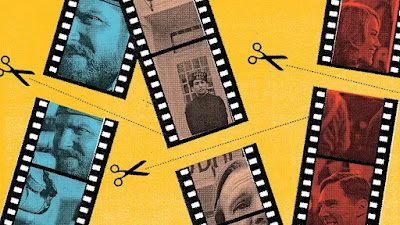What makes a good horror story?
You will say ghosts, monsters, vampires, etc. As a classic horror author H.P.Lovecraft.
"The oldest and strongest kind of fear is fear of the unknown".

Writers did not reveal the horrors but by leaving the audience hanging in anticipation i.e. in a state of suspense. The most familiar examples of tension come from horror films and mystery novels.
The key to suspense is it sets a question in the hope audience will get the answer too by maintaining the interest and keeping them guessing.
Next limit the Point of view, and tells the story from the perspective of the characters start as they know little as the audience does as they learn more.
Just keep audience in dark but sometimes reveal key parts of the big secret to the audience. But not to the characters. This technique knows as Dramatic Irony. Classic play "OEDIPUS REX" the title character is unaware that he has killed his own father and married his mother but the audience knows. Provide the story's agonizing climax.
The cliffhanger, this is where chapter, episode, volume, or season cuts, right before reveals (Hook).
There are many elements that can make a horror story effective, but some key elements include:
Suspense: A good horror story creates a sense of tension and anticipation in the reader or viewer. This can be achieved through the use of foreshadowing, pacing, and atmosphere.
Fear: A horror story should elicit a sense of fear in the audience. This can be done through the use of graphic imagery, jump scares, and other techniques that create a sense of danger and unease.
Atmosphere: The atmosphere of a horror story is crucial. It should create a sense of unease and dread that permeates the story and stays with the audience long after the story is over. This can be achieved through setting, lighting, music, and other elements.
Characters: A good horror story should have well-developed characters that the audience can relate to and care about. This will make the audience more invested in the story and more affected by the horror elements.
Originality: A horror story should offer something new and fresh, whether it be in the form of a unique premise, new twists on old tropes, or a different take on the genre.
Themes: A horror story should explore deeper themes that resonate with the audience. A horror story could be about the fear of death, the unknown, the loss of control, or the darkness that lies within human nature.
Buildup and Release: A good horror story should have a balance of build-up and release of tension, allowing the audience to experience the horror in a controlled way, so they can be more affected by the climax.
Emotional Resonance: A horror story should elicit an emotional response from the audience, whether it be fear, disgust, or sadness. This can be achieved by evoking empathy for the characters and creating a sense of emotional investment in the story.
It's worth noting that not all horror stories need to hit all of these elements, but a good horror story usually has a good combination of them.
Next time writing when you are writing a horror story, novel or screenplay keep this secret in your mind.



.webp)
Comments
Post a Comment